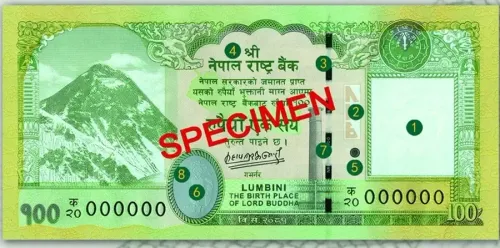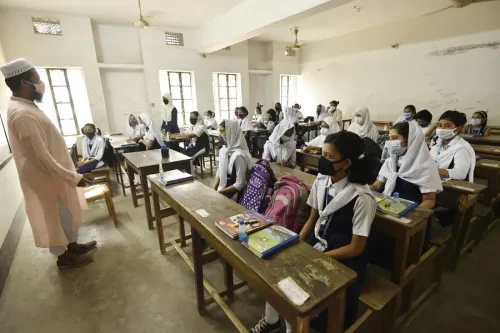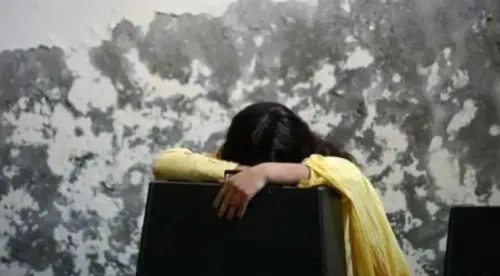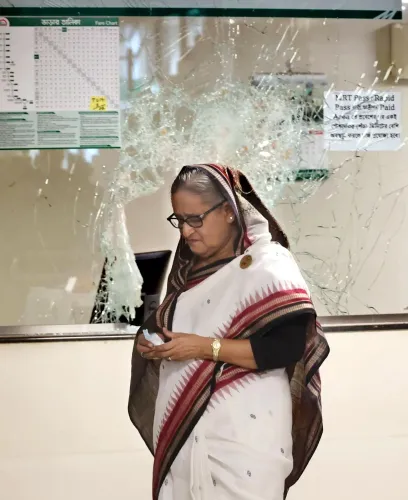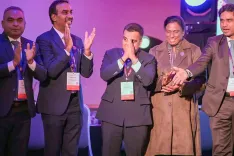Is the Resurgence of Hizb ut-Tahrir in Bangladesh a Sign of Radicalisation and Caliphate Ambitions?
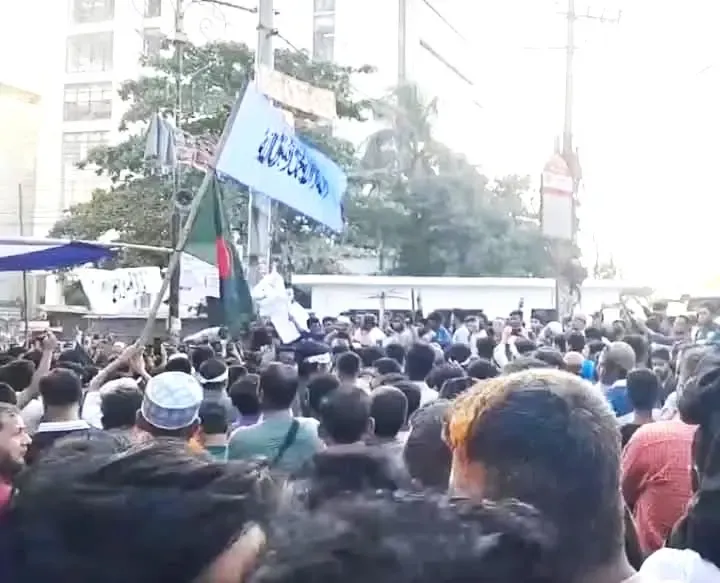
Synopsis
Key Takeaways
- Hizb ut-Tahrir's resurgence is a significant threat.
- Extremist ideologies adapt and exploit political landscapes.
- The organization aims to dismantle democratic frameworks.
- Radicalization is facilitated through disillusionment among youth.
- Vigilance and legal action are critical in response.
Colombo, Nov 27 (NationPress) The revival of the terrorist organization Hizb ut-Tahrir (HT) in Bangladesh has become evident with its recent gathering by the Baitul Mukarram Mosque in Dhaka. This event underscores the reality that extremist ideologies do not disappear; instead, they evolve, recalibrate, and exploit the political environment, according to a report released on Thursday.
The report highlights that HT is resurfacing with a reinvigorated mission intended to undermine constitutional sovereignty, infiltrate national institutions, and utilize political instability to alter the nation’s course.
As noted in the Sri Lanka Guardian, the display of white caps, black-and-white flags, and synchronized chants of "Khilafah" and "Allahu Akbar" were not merely performative; they represented a calculated endeavor to reaffirm a transnational ideology that stands in stark opposition to Bangladesh's constitutional framework.
“Indeed, Hizb ut-Tahrir represents one of the most pernicious threats to Bangladesh's peace and sovereignty. Under the guise of piety, this militant group propagates a fanatic, anti-state ideology aimed at dismantling our constitutional order and leading the nation into chaos. Its members prey on disenfranchised youth, filling minds with extremist beliefs and conspiring to undermine our democratic republic’s very foundation. They are intricately linked with every harmful political Islamist faction in Bangladesh, operating in the shadows and through covert means,” the report elaborated.
“Bangladesh, forged in blood and sacrifice in 1971, cannot and must not accept such betrayal. This organization is not a faith-based movement—it is a malignant force that aims to destabilize the nation, weaken its institutions, and endanger its citizens. It must be confronted, revealed, and eradicated with the full force of the law and the unwavering commitment of a vigilant populace,” it continued.
The report further emphasized that HT’s agenda is clear—dismantling the nation-state constitutions and replacing them with a unified caliphate governed by a singular interpretation of Sharia.
“Elections, pluralism, and legislative discussions are dismissed as illegitimate 'man-made laws.' This is not a movement seeking reconciliation within Bangladesh's constitutional framework; it argues for the annulment of the framework itself,” it reinforced.
While HT claims to be "non-violent," the report indicates that its absolutist end-goals and rejection of democratic institutions create a permissive intellectual environment that facilitates radicalization in Bangladesh. Reports from the U.S. Country Reports on Terrorism have highlighted how the endurance of banned ideologies thrives in an atmosphere conducive to extremism, even in the absence of overt violence.
The report underscored that the political unrest since 2024 in Bangladesh has widened the discursive space, allowing extremist elements to leverage broader protest movements by adopting the language of rights and anti-authoritarianism.

